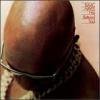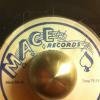- Replies 46
- Views 5.5k
- Created
- Last Reply
Most active in this topic
-
maslar 11 posts
-
Chalky 4 posts
-
Peter99 3 posts
-
SOULCENTRAL 3 posts
Most Popular Posts
-
Whilst a bootleg was at one time generally concert music but not always the case, a bootleg is actually any music (or other product, booze, cigarettes) published illegally. 2. To produce, distr
-
Been engrossed the last few days with the Levine Soul Pack debate but now Maslar has come on and it seems to be developing into the same as the threads on the political forum now defunct , which Masle
-
No, you just own an acetate.....no rights to release it whatsoever.....no grey area. (Unless you wrote and produced it of course !)






Id just like to clarify a few points because following all this is interesting - better than the telly atm - but a little confusing. What most people refer to as "boots on the Northern scene are actually what may be referred to as counterfeits in the wider record collecting scene where:
Bootlegs are unissued material previously unavailable and possible ambiguous ownership. These are different to
Counterfeits - which are reissues (in this case vinyl) of previously released material. from any source or format.
Within the sphere of counterfeits there are "reproductions".
Would I be right in saying these new records (pressings) contain both bootlegs and counterfeits - and also reproductions. And since the unissued material (bootlegs) and the LP tracks (counterfeits) are easily recognizable as such the main issue is with the reproductions?
If this is the case my question is as follows: Are the reproductions (which has been stated are of a high quality) distinguishable from the original? And if so how easily? It seems to me from what I've read that there would be indications that they are not actually originals (eg vinyl instead of styrene).